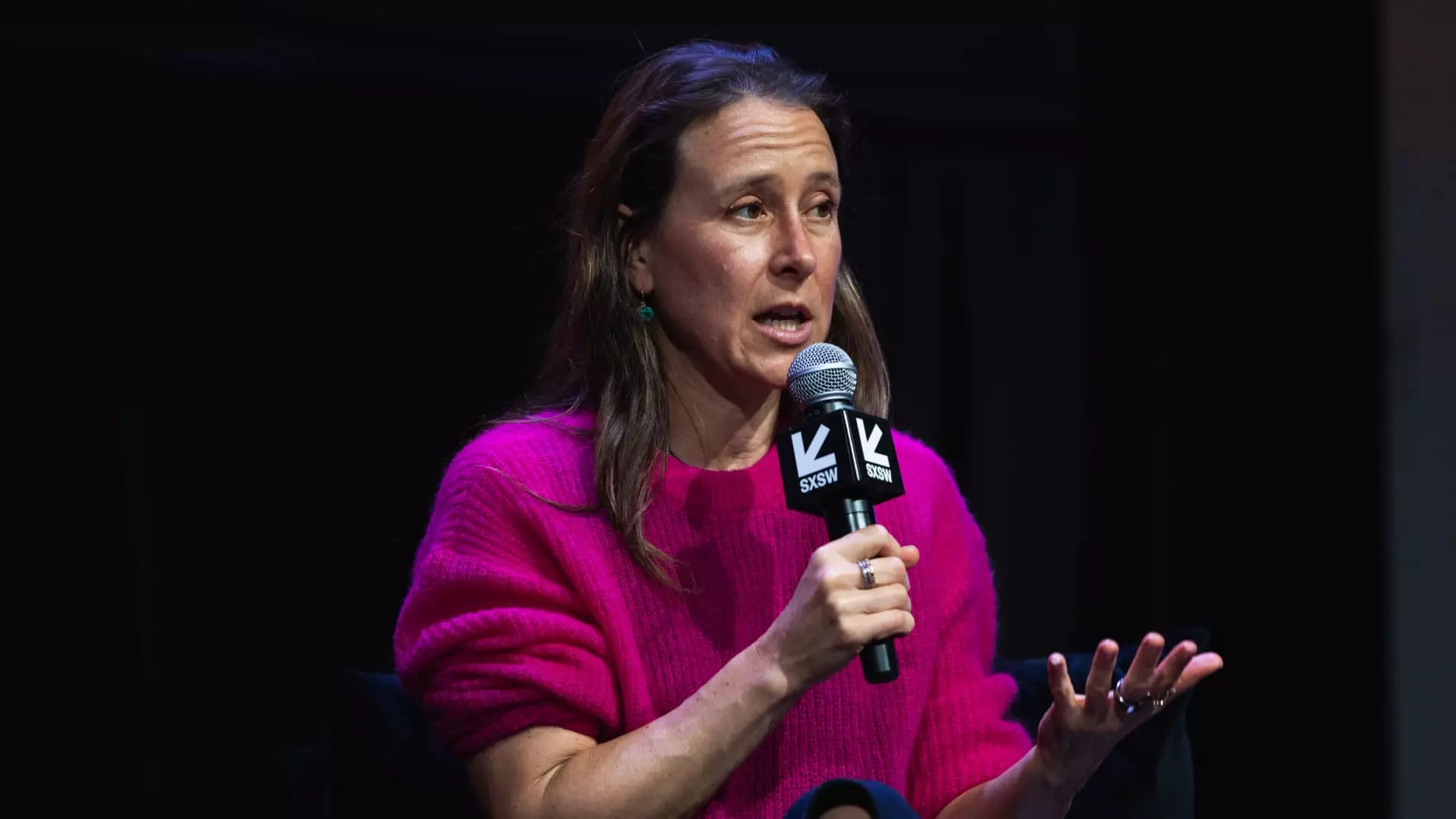The journey of 23andMe, a pioneering genetic testing company, exemplifies a tumultuous saga that many tech enterprises undertake in their quest for success. Once basking in the glow of a $6 billion valuation, the company faced a stark turnaround, submitting to Chapter 11 bankruptcy protection recently in a Missouri federal court. This abrupt descent highlights a broader narrative of innovation, ambition, and the harsh realities of the business world, underscoring how a single industry can quickly turn from gleaming promise to troubling disarray.
The announcement of CEO Anne Wojcicki’s immediate resignation encapsulates the angst that accompanies such seismic shifts within high-profile companies. While Wojcicki co-founded 23andMe in 2006 and propelled it into the collective consciousness through its innovative at-home DNA testing kits, her exit signifies a deeper crisis. Trust in leadership is paramount during tumultuous times, and the board’s decision to have Joseph Selsavage ascend as interim CEO reflects not only a shift in strategy but an urgent need for fresh perspectives.
From Blooming Startup to Financial Turmoil
Born at the intersection of technology and personal health, 23andMe initially captivated the market with its direct-to-consumer model, allowing individuals to uncover their ancestry and genetic predispositions from the comfort of their homes. The company’s public offering in 2021, through a merger with a special purpose acquisition company, was a watershed moment, valorizing its place at an estimated $3.5 billion. Fast forward to the present, however, and the stock price plummeting to a meager market cap of around $25 million reveals the reality of recurring failures to monetize its innovations properly.
The precipitating factors—flawed revenue models and an inability to establish sustainable avenues in research and therapeutics—expose a crucial lesson in business: innovation must align not only with market demand but also with sound financial strategies. Attempted proposals to take the company private, rejected by its special committee, echo the sentiment that desperation can often lead to unproductive paths. The stark need to pivot from a dwindling stock price indicates that, while groundbreaking, even the most well-conceived business notions can falter without continuous adaptation.
Customer Data: A Double-Edged Sword
Amidst the economic downturn, burgeoning privacy concerns loom heavily over 23andMe. The hack exposing sensitive information of approximately 7 million customers is emblematic of an industry grappling with ethical responsibilities in data management. Wojcicki’s emphasis on transparency and choice while advocating for consumer data rights appears almost as an echo of lost control; a recognition that despite the cutting-edge technology involved, the very essence of customer trust has become fragile.
California Attorney General Rob Bonta’s consumer alert urging residents to delete their genetic data hints at a public that is beginning to reconsider the implications of sharing such intimate information with third-party entities. This growing sentiment, a healthy skepticism towards data-sharing practices, may symbolize a tipping point—wherein consumers prioritize transparency above all. Companies like 23andMe must navigate this landscape carefully as public sentiment evolves and ethical standards soar.
A Future Emboldened by Challenges
As 23andMe embarks on its bankruptcy process, the proposed sale of its assets offers a glimpse into the uncertain fate of the company. A new chapter is unfolding, one that emphasizes the resilience of an enterprise even in the face of adversity. The interim CEO’s role will be pivotal; a leader willing to embrace emerging trends while addressing long-standing concerns about privacy will be essential.
Wojcicki’s attitude, underscoring her “unwavering” belief in the future of the company, suggests a strategic focus on reinvention and adaptability. The challenges faced, while daunting, might serve as fertile ground for innovation if the leadership is willing to learn from past missteps. Innovative solutions built on consumer trust, transparency, and ethical practices could form the foundation for a new identity—one that reconnects 23andMe with its original vision while modeling a more responsible approach to genetic testing.
In this evolving narrative, 23andMe represents not just a single company but a reflection of contemporary challenges in technology and consumer protection. The struggles it faces are a call to action for the industry at large to reevaluate and recommit to conscientious practices. As this saga unfolds, all eyes will be on the paths chosen, illustrating the intricate dance between innovation and accountability in the modern business landscape.

